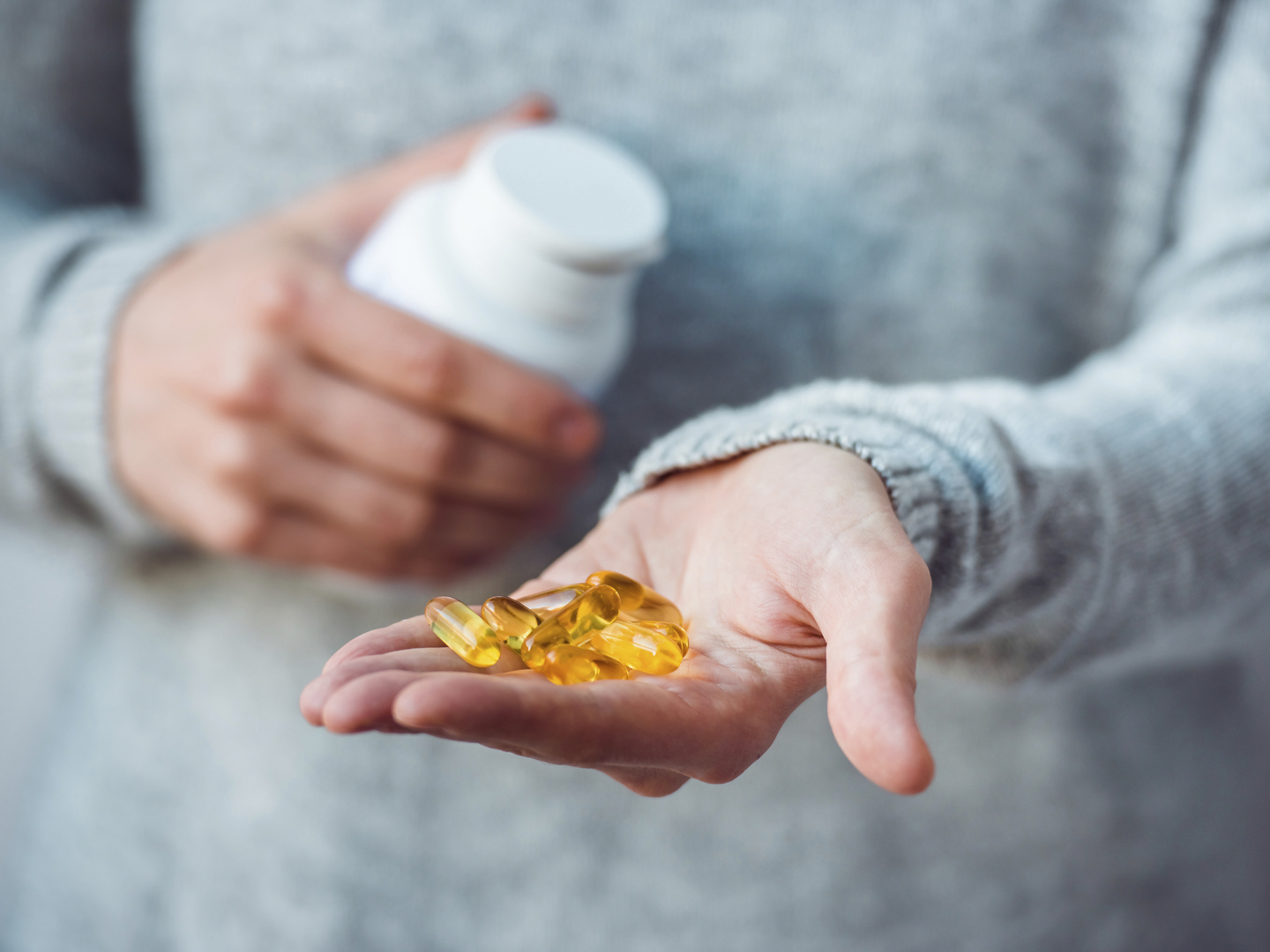Fish Oil for Depression?
What can you tell me about using fish oil to treat depression? Does it really help?
Andrew Weil, M.D. | September 12, 2011

Fish oil is a rich source of the two essential omega-3 fatty acids – EPA (eicosapentaenoic acid) and DHA (docosahexaenoic acid). Omega 3s are found in beef, eggs and poultry, but are most abundant in the fat of cold water, oily fish and are also available in supplement form. The body requires adequate amounts of both EPA and DHA to maintain optimum health. For that reason, I recommend eating oily fleshed, wild caught, cold water fish two to three times per week. Most people don’t do that and as a result, don’t get enough omega-3s, making this perhaps the most serious dietary deficiency in our population.
A great deal of scientific data links low tissue levels of EPA and DHA to a host of mental/emotional disorders, including depression, violent behavior, suicide, and learning disabilities. Dietary supplementation with these fats, usually in the form of fish oil, has proved to be an effective, natural and nontoxic therapy for bipolar disorder, attention deficit hyperactivity disorder, postpartum depression, seasonal affective disorder and other health concerns. It also helps prevent depression and improve overall emotional well-being. Very high doses of fish oil – 20 grams a day or more – have been used as treatments without any ill effects. In fact, there is no downside to adding good quality fish oil to your diet (except for the sustainability of ocean resources, a significant concern).
Because omega-3 deficiency is so common and raising tissue levels of omega-3s has so many health benefits, I recommend that everyone take two to four grams a day of a product that provides both EPA and DHA (more of the former). Read labels carefully to make sure you’re getting two to four grams of total omega-3 fatty acids (EPA+DHA), not of oil. Pass up products that include omega-6 or omega-9 fatty acids; you don’t need to supplement with them. Buy only brands of fish oil that are “molecularly distilled” or otherwise guaranteed to be free of toxic contaminants. You may have to take three or four capsules twice a day to get the recommended dose. Take them on a full stomach. If you get fish-flavored burps, try keeping the product in the freezer and swallowing frozen capsules. I cannot overemphasize the importance of this simple measure to improve emotional well-being. Not only does it offer real protection against depression, I believe it can help move your emotional set point away from sadness and toward contentment.
For a full discussion of natural remedies for depression and an integrative plan for optimum emotional well-being, watch for my new book, Spontaneous Happiness, to be published by Little, Brown & Co. in November, 2011.
Andrew Weil, M.D.









